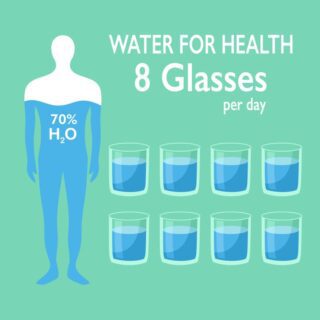Recognizing and Managing Nutritional Deficiencies: A Practical Guide

Nutritional deficiencies can have significant impacts on health and well-being. Recognizing the signs and managing these deficiencies is crucial for maintaining optimal health.
Common Nutritional Deficiencies
Iron:
- Signs: Fatigue, weakness, pale skin, shortness of breath, and brittle nails.
- Sources: Red meat, poultry, fish, lentils, beans, spinach, and fortified cereals.
Vitamin D:
- Signs: Bone pain, muscle weakness, increased risk of infections, and mood changes.
- Sources: Sunlight exposure, fatty fish, fortified dairy products, and supplements.
Vitamin B12:
- Signs: Fatigue, weakness, tingling in the hands and feet, and cognitive difficulties.
- Sources: Meat, dairy products, eggs, fortified cereals, and supplements.
Calcium:
- Signs: Muscle cramps, brittle nails, dry skin, and increased risk of osteoporosis.
- Sources: Dairy products, leafy green vegetables, fortified plant-based milks, and almonds.
Magnesium:
- Signs: Muscle twitches, cramps, mental health issues, and irregular heartbeat.
- Sources: Nuts, seeds, whole grains, dark chocolate, and leafy green vegetables.
Iodine:
- Signs: Swelling in the neck (goiter), fatigue, weight gain, and thyroid dysfunction.
- Sources: Iodized salt, seafood, dairy products, and eggs.
Diagnosing Nutritional Deficiencies
Medical Consultation:
- Consult a healthcare provider if you suspect a nutritional deficiency. Blood tests can diagnose deficiencies accurately.
- A registered dietitian can provide personalized dietary recommendations based on your nutritional needs.

Managing Nutritional Deficiencies
Dietary Changes:
- Incorporate nutrient-rich foods into your diet to address deficiencies. Focus on whole foods rather than supplements whenever possible.
- Plan balanced meals that include a variety of food groups to ensure adequate nutrient intake.
Supplements:
- In cases where dietary changes are insufficient, supplements may be necessary. Always consult a healthcare provider before starting any supplements.
- Follow dosage recommendations carefully to avoid toxicity from excessive intake.
Regular Monitoring:
- Regularly monitor your nutrient levels, especially if you have a condition that predisposes you to deficiencies.
- Maintain follow-up appointments with your healthcare provider to track progress and adjust dietary or supplement strategies as needed.
Summary:
- Common nutritional deficiencies include iron, vitamin D, vitamin B12, calcium, magnesium, and iodine, each with specific signs and dietary sources.
- Diagnosing deficiencies requires medical consultation and blood tests, followed by dietary changes or supplements as needed.
- Managing deficiencies involves incorporating nutrient-rich foods, taking supplements when necessary, and regularly monitoring nutrient levels with healthcare providers.

This article reviewed by Dr. Jim Liu, MD and Ms. Deb Dooley, APRN.
There’s nothing more important than our good health – that’s our principal capital asset.
#medical #telehealth #umedoc










